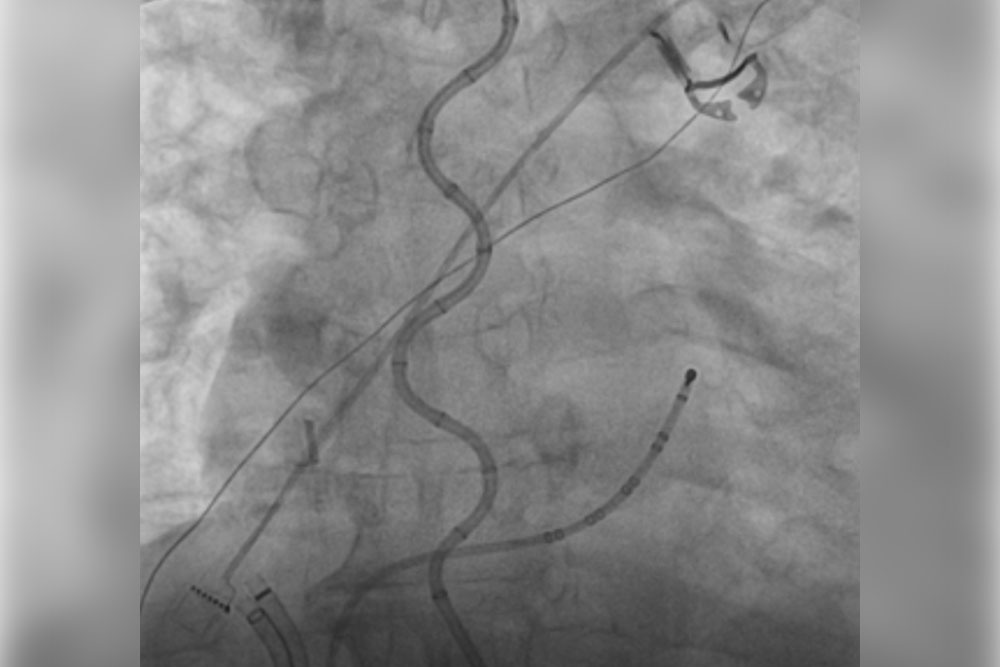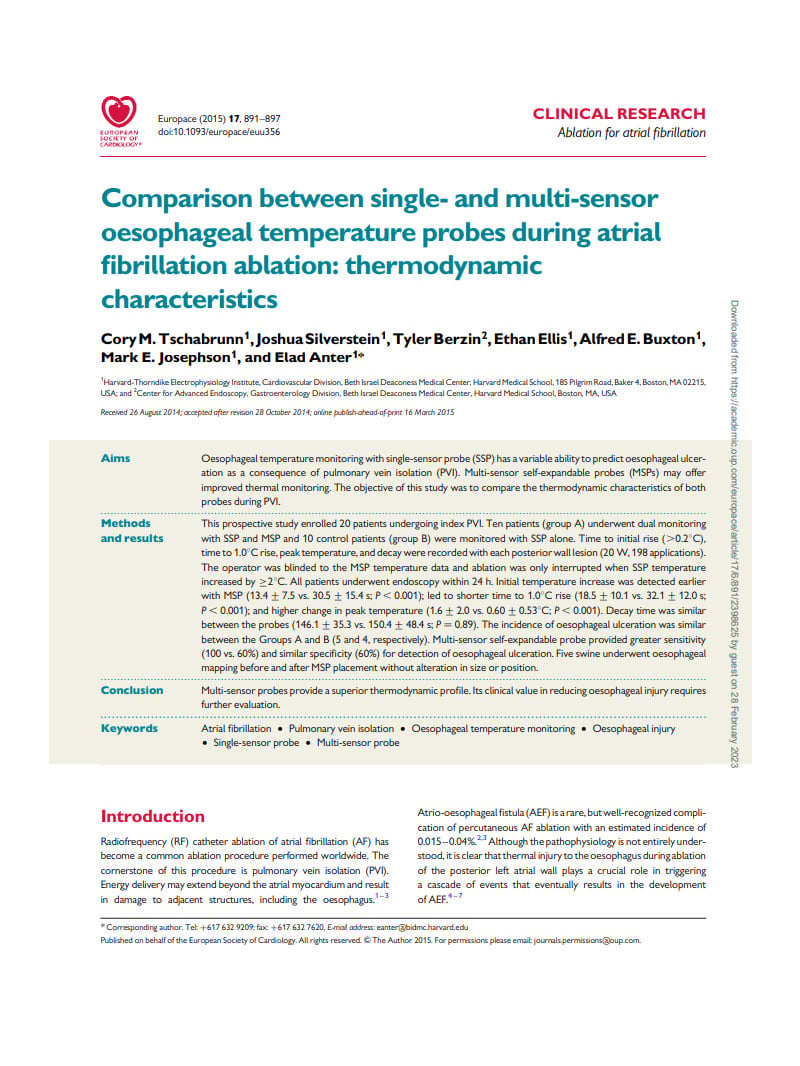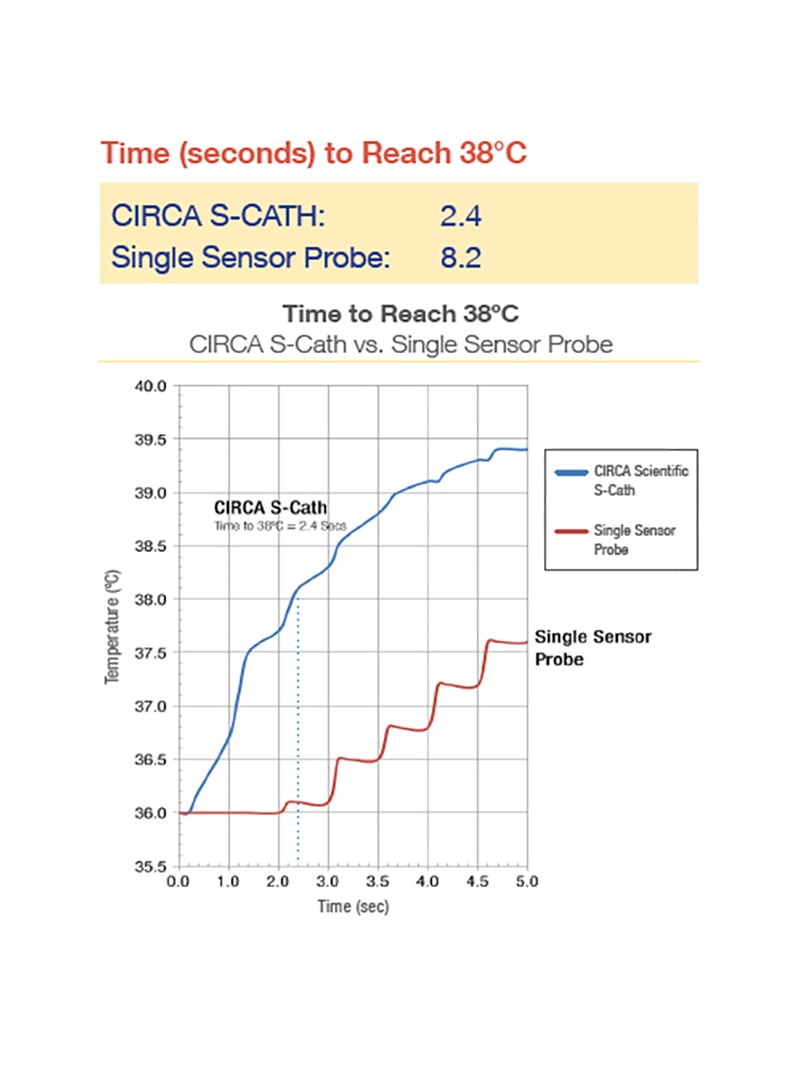Response Time
Faster, more accurate temperature detection to both hot and cold temperature changes
CIRCA temperature probes deploy 12 rapid response temperature sensors on a unique design, positioning sensors close to the source of an esophageal temperature change. Continuous monitoring software displays data directly on the CIRCA monitor, which is updated 20x per second, providing faster detection of esophageal temperature changes.
Advanced temperature monitoring matters
During therapeutic procedures, esophageal temperatures can change quickly and unpredictably.

The esophagus lies in direct contact with the heart, subjecting it to rapid and potentially dangerous temperature changes during cardiac ablation procedures.1
To mitigate this risk, esophageal temperature monitoring has become standard-practice for most AF ablations performed today. Temperature monitoring provides feedback to physicians so that they can alter the procedure to avoid esophageal injury.2
Unfortunately, general purpose temperature probes are often used during these procedures – for a purpose they were not designed or intended for. These probes are designed to measure continuous core body temperature, not sudden temperature changes.2

In an independent study of 198 applications in 10 patients, the S-CATH recognized an initial temperature rise of 0.2ºC 17 seconds faster than a single sensor probe. (13.4+7.5 vs. 30.5+15.4 s; P, 0.001).

CIRCA S-CATH vs. single sensor 9F esophageal probe simultaneous submersion in warm water bath, representing optimal sensor positioning. Test conducted by CIRCA Scientific.
S-CATH Resources
CIRCA Temperature Monitoring Overview Video
Ready to learn more about how advanced temperature monitoring matters?
Click the button below to trial CIRCA’s esophageal temperature monitoring solutions.
References
1 Elsheshtawy, M., et al. “The Esophagus and Atrial Fibrillation: Anatomical Considerations and Practices.” EP Lab Digest (2017): 22-25.
2 Gianni, C., et al. “Difference in thermodynamics between two types of esophageal temperature probes: Insights from an experimental study.” Heart Rhythm 13.11 (2016): 2195-2200.
3 Tschabrunn, CM, et al., Comparison between single- and multi-sensor oesophageal temperature probes during atrial fibrillation ablation: thermodynamic characteristics, Europace 2015 doi:10.1093/europace/ euu356.
4 In-house data. Test conducted by CIRCA Scientific.